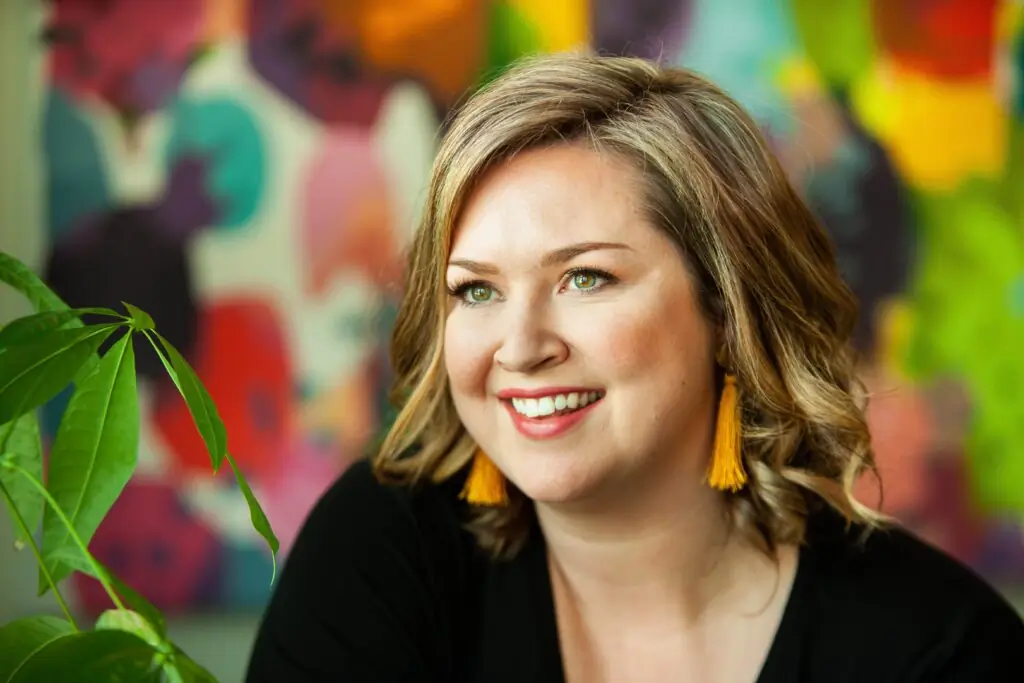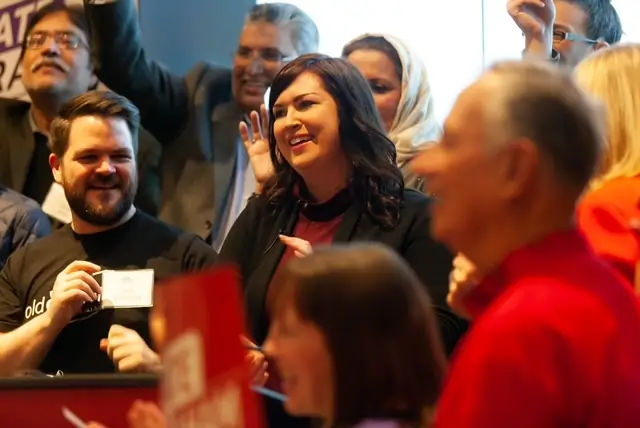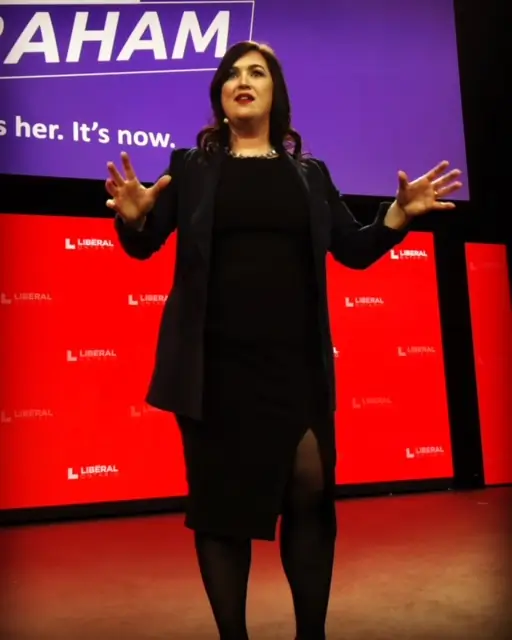
If you’ve ever asked a woman to run for office, this will probably sound familiar.
Me: “You should consider running for [insert any elected role]. You’d be terrific. We need more bright, hardworking, kind, empathetic, and honest people like you in politics — and I think you would make an outstanding elected official. I hope you run, and I’d love to support you.”
Her: “I don’t know … I just don’t think I’m [insert self-perceived deficiency] enough.”
Me: “Listen, I get that we’ve grown to understand being ‘qualified’ means looking like most political leaders in the past — older, white, straight, affluent men with boardroom-heavy CVs … but that’s bullshit! We desperately need leaders who break this mould. The fact that you bring a different perspective is part of what qualifies you to run!”
Her: “Well … I just don’t know if I could ask that of my family right now. The scrutiny, the time away, the pressure it would bring on them. And my job — it’s just not a good time to take lots of time off right now, and could I really afford to do that anyway? And I’d be worried about …”
This is where the conversation gets tricky.
Many of the barriers faced by women and those from equity-deserving groups are now very well known — including to potential candidates.
Yes, you will get trolled (hard) on social media. Yes, this will stress you out and keep you up at night (until you learn to care less about the trolls and/or turn off social media). Yes, you will be judged extensively and some will question whether you are ‘qualified’ for the role you seek (usually reflecting the person’s own conscious and unconscious biases). Yes, running is a grind and it will require your full attention and take you away from whatever else is going on in your personal and professional life for a long period of time.
Yes, you will have to ask a lot of people for money — and heck yes, this is uncomfortable even when you’ve done it 100 times. Yes, knocking on doors will push you in ways you never anticipated and you will be expected to have 10-second answers to many of life’s most difficult policy problems on a dime. Yes, you will need to recruit your own team of talented people who are willing to put in countless hours in exchange for a few free slices of pizza.
And, yes, at the end of all of that you may very well lose. Most people who run lose — and unless you’re the leader of the party or in a position of high influence, most of that outcome is actually not in your control.
(Me, in my head: How honest should I actually be if I have any hope at all that they will take the leap?!)

These are barriers that are now well known — and if you don’t believe me, ask a woman to run for office and see how quickly one of these topics comes up — but there are also lots of unknowns about decisions to run.
How much does it actually cost for someone to seek elected office? If running for a partisan role, how will your professional relationships or opportunities be impacted? How will the experience impact your sense of self, your mental and physical health, or your closest personal relationships? These topics are the black boxes of gender and political campaigns that we haven’t processed yet.
The truth is that when we ask someone to run for office, we don’t fully know what we’re asking of them — or the kind of sacrifices we’re asking them to make if by some miracle they actually say yes.
I’ve run for office three times: twice in a provincial election in a riding, and once in a leadership race (a little flavour of that wild ride here). All three times, there was no rational reason to do it. I made less money, and had more sleepless nights and far less time with my family than if I’d said no. All three times, I had to step away from jobs I loved and commitments that brought me joy. All three times, I lost.

And all three times, people after the election would inevitably say things like, “I’m sorry you lost, but don’t you kind of feel like you dodged a bullet? Now you can go back to a job you love and relax a bit and you don’t have to put up with all of that fighting every day as an elected official.”
Although I wouldn’t say it out loud, the truth was that I did feel a bit this way.
Politics matters.
Nothing affects more people than politics. The capacity to have a positive impact in other’s lives can be very high. We need good people to run, for all parties and at all levels — especially those who bring underrepresented perspectives, as we know this leads to better decisions and improved outcomes. So running for office matters, which is the only (somewhat) rational reason some people find a way to say yes.
Running can be a powerful, exciting, high-growth, and defining experience. But when the negativity, divisiveness, and overall culture of our political system gets so bad that running feels like a totally unreasonable request or when losing feels like winning … well, we have a big problem on our hands.
Our political culture needs to change. Period. This is the reason women say no: because for too many, engaging in politics seems at best like a turnoff and at worst like an all-out dogfight to be avoided at all costs. This must change. It doesn’t have to be that way. We don’t have to accept that it’s “just the way it is.” No, we need to work to change it.
For too many, engaging in politics seems at best like a turnoff and at worst like an all-out dogfight to be avoided at all costs.
Women have been underrepresented in politics for Canada’s entire history, including today.
What will it take to actually fix this? What are we prepared to do to support more women from a greater diversity of backgrounds and socio-economic positions to step forward to run?

If we’re going to keep asking women around us to run (and yes, we should keep at this!) then we also need to be asking these bigger questions. And we need to take concrete steps to make it easier for potentially wonderful candidates to say “yes.”
We often say #addwomenchangepolitics, but we should be talking about #changepoliticsaddwomen (and ideally a much greater diversity of women). We need a political culture that is worthy of great candidates, not the other way around.








